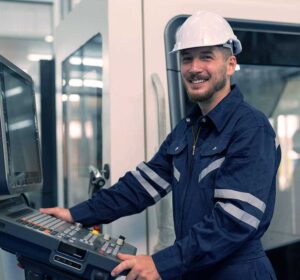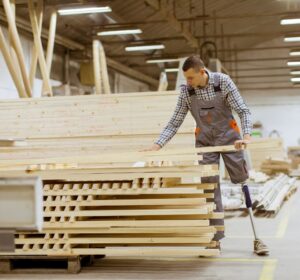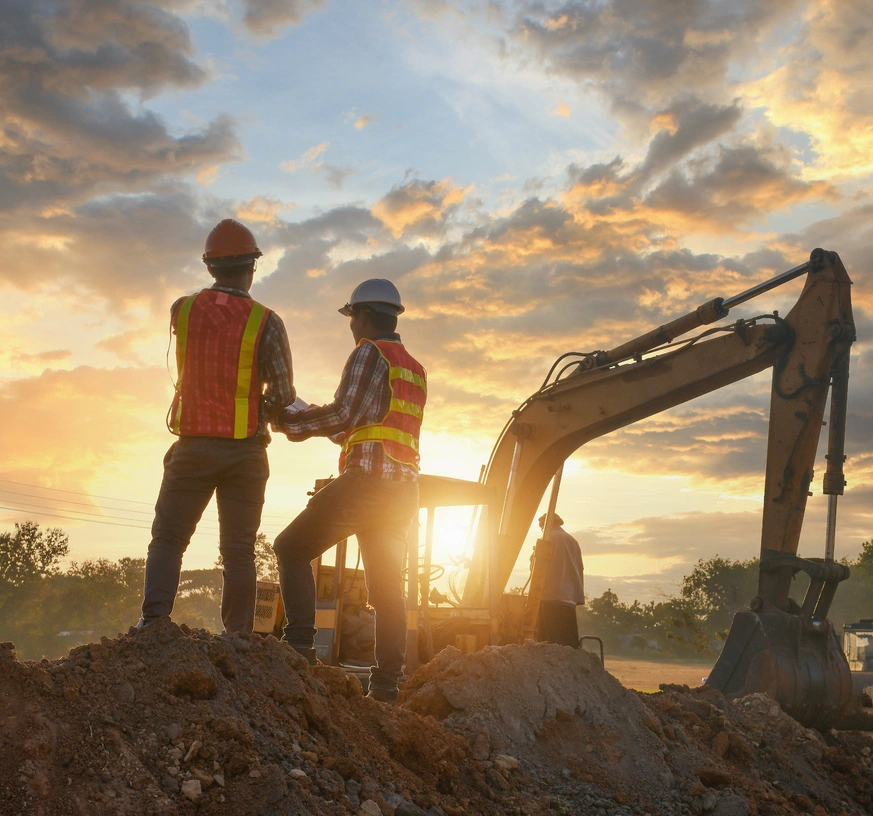Deciding whether to buy farm equipment comes down to plans to expand your farm, how much cash you have, and how often or for how long you’ll use the equipment.
Buying new equipment gets you the latest technology that can likely handle more acreage if you expand and probably has a lower risk of maintenance downtime, which can crush yield. New equipment is expensive though, so well-maintained used equipment is also an option, and it can save you money without sacrificing too much yield in some cases.
Renting gets you new or almost-new equipment without the large down payment. Just make sure to check for maintenance or replacement clauses in the rental contract. By knowing what these clauses are, you can avoid sitting idle and waiting for parts if something breaks. Renting also lets you test new technology to make sure it boosts production before you make a big investment by buying it.
Whether you’re running a family farm that’s generations old or just getting into the industry, this guide will help you know when it makes sense to buy or lease and go new or used. We’ll cover tractors, combines, irrigation systems, and other types of farm equipment based on your situation.
Tractors, Combines, and Other Vehicles
Buying vs renting tractors and combines should be based on whether you have the cash flow to qualify for an agriculture loan or equipment financing, or if you can buy the machines with cash on hand. Outside of what you can afford now, think about how much more acreage you need to cover over the next decade, and if you can deal with breakdowns or maintenance delays.
When to Buy Tractors or Combines
When your acreage is stable and you have the cash to pay outright or enough for a down payment (where you can finance the remainder with an equipment financing loan), then it makes sense to buy. This is especially true when the total cost across the equipment’s life will be less than renting, and when you can get the tax write-off from depreciation.
Additionally, you can sell equipment in an emergency, whereas you’re locked into continued payments on rental contracts.
If you’re not worried about repairs, used machines with verifiable service logs, dyno reports, and telematics histories can save you 30% to 50% of the purchase price, depending on the season and where you make the purchase. Before you buy, check that a local dealer has spare parts for your model, or that you can get them delivered quickly whenever your equipment needs repairs.
Pro-tip: It may be possible to get tax savings with new or used farm equipment with Section 179 and bonus depreciation. Talk to your accountant to see what works best for you. You may be able to deduct up to 100% of the purchase price in the first year.
When to Rent Tractors or Combines
Renting makes sense if you have already signed contracts where you can’t miss a day or two of production, and you don’t have a backup machine. New farm equipment may be covered by a full warranty for 2 years or so, but that does not mean the repairs will happen as fast as you need them to. When you rent tractors or combines, you can add a clause to set a required time frame for how long repairs and maintenance should take.
If you’re planning to expand your farm, renting now and waiting to buy will give you time to better match the tractor to the land and your future planned uses. On top of accessing better technology as you farm more land, you can put away cash now for the future down payment when you decide to go with a bigger or newer machine.
Pro-tip: Verify that the operating hours you’re allocated in the rental agreement are enough to meet your needs, since going over can significantly drive up the cost.
Other Vehicles
For trucks, ATVs, and other farm vehicles, it’s best to buy when you have enough cash flow for the down payment and monthly payments, since it will cost you less money overall and you can sell it down the line. Renting is a better option if you’re minimizing costs because you know you can get lease deals with lower monthly payments, and downtime will be a non-issue when you can quickly swap one out for another.
Processing Equipment
If you’re not sure whether to buy versus rent processing equipment, this comes down to how much you’ll use it and how quickly the technology typically changes.
When to Buy
Buying makes sense when you have delicate handling requirements or need custom-built equipment with highly specialized sensors and data analytics so that you get precisely what you need. Used processing equipment is fine to buy when the technology changes slowly/not often. For example, buying used gravity table air screen cleaners will save you money, and the technology hasn’t changed much in decades.
Pro-tip: It’s possible to pick up equipment for pennies on the dollar through the Treasury Department or GSA auctions. Just be cautious and have a local pro inspect anything before you buy for the best results.
When to Rent
It’s best to rent processing equipment when you won’t constantly use it or will only use it seasonally. Examples are continuous flow or portable dryers if you live in a dry climate where El Niño is causing humidity, mildew, and fungal risks.
Fast advances in equipment like optical sorting, robotic graders, or electrohydrodynamic drying machines make renting these a better option than buying because you can figure out if they boost productivity enough to make them worth the full investment later.
Irrigation Systems
The decision to buy or rent depends on the specific parts of the system because some of the parts hold their value and last for decades (like a large-scale center pivot system), while others rely on technology that’s often being upgraded.
When to Buy
It’s best to buy new surface and sprinkler irrigation equipment since it should last 20+ years. You don’t want to risk getting used equipment that has unseen damage from weather issues, as this doesn’t necessarily show up on maintenance reports.
This equipment holds its value well over time, so you won’t get a huge discount buying used anyway. That also means you can sell it for a good price in a pinch if need be.
New equipment is best for subsurface irrigation even if you’re looking at thick-wall systems, because digging up a used system has a high chance of damaging or weakening it. You can get away with used above-ground drip systems if absolutely necessary, but consider renting thin wall systems and letting the contractors handle the flushing, removal, and recycling.
Pro-tip: You may qualify for funding from grants by checking with your state or the federal government. As an example, Montana has a grant program for irrigation enhancement, and Grants.gov is another place to kick off your search for other needs.
When to Rent
Renting the panels, drives, and telemetry boxes conserves cash, and the power and water usage savings will help offset the higher monthly payments from renting until you have enough cash to buy. Other pieces that need replacing or that you may want to upgrade in the near future will make more sense to rent rather than buy, unless you find a good deal on used pieces that are in great condition.
Every farm is unique, so buying versus renting different equipment depends on your cash situation, the size of your farm, expansion plans, the maintenance records that can be verified, and your confidence in being able to fix issues quickly. The table below is a cheat sheet to help you think through various situations based on the information in this guide.
| Buy New | Buy Used | Lease / Rent | |
| Up‑front cash required | High | Medium | Low |
| Total cost | Medium | Lowest | Highest |
| Tax benefit | Up to 100% purchase price deduction in year one with carryover | Up to 100% purchase price deduction in year one with carryover | Lease payments are a standard business expense |
| Technology obsolescence risk | Medium | High | Low |
| Maintenance & downtime risk | Medium | High | Low (with service agreement clauses) |
| Best when | No cash flow concerns Buying heavy-use, long-lasting equipment Technology is proven and stable | Need to conserve cash flow Thorough and verifiable maintenance records available | Limited cash flow or cash on hand Seasonal, infrequent, or light usage planned Easy to substitute alternate equipment Technology is rapidly advancing |
SmallBusinessLoans does not provide tax, legal or accounting advice. This material has been prepared for informational purposes only. You should consult your own tax, legal and accounting advisors.

















